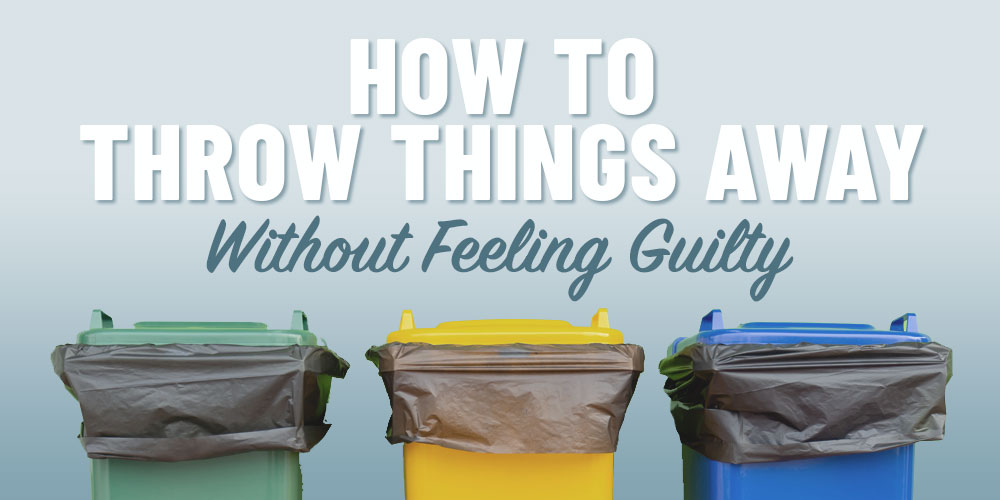
NAVIGATION
Guilt is one of the biggest hurdles standing between us and our ability to throw things away.
If you’ve tried decluttering, you probably know what I mean. As soon as you consider getting rid of an item, voices in your head start playing devil’s advocate.
Suddenly, a stained shirt becomes an item somebody in the world could definitely use. A cringeworthy heirloom holds the memories of every family member who has come before you. A kitchen appliance you’ve never used sits on the counter reminding you that you spent way too much money on it to simply discard it.
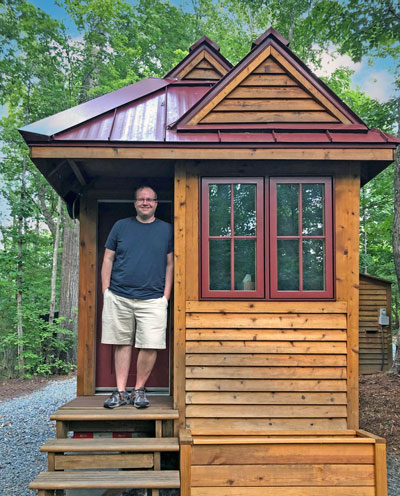
Hi, I’m Ryan
When I started throwing away things that didn’t add value to my life, I didn’t know how the process could ever be easy. Now, over 10 years later, the act of decluttering has become second nature — it’s a lifestyle I’m passionate about sharing because of how it improved my life.

I’m often asked how I managed to downsize my possessions so dramatically, and for the most part, I have to say it comes down to practice. The act of decluttering and experiencing how an item’s absence improves your day-to-day life is the best motivator to keep throwing things away.
Getting started is the hardest part because it means kicking those guilty voices out of your head. To help you beat this obstacle, I have four strategies that I use to overcome decluttering guilt.
Why Throwing Things Away Is Important

Whether or not you want to commit to a minimalist lifestyle like I do, knowing when to throw things away and how part with items that no longer serve you is an important skill. The stuff you own and how much of it you keep affects your daily life more than you’d think.
Clutter Is Bad For Your Health And Lifestyle
I could reference numerous research studies over the past 20 years that have linked clutter to stress and dissatisfaction, but I don’t think I need to. If you’re reading this, you already know that clutter stresses you out.
Beyond adding stress to our daily lives, clutter takes up valuable time, makes us anxious about inviting people into our homes, and makes it more difficult to travel or move. In short, clutter eliminates peace from your home life.
Never Throwing Things Away Is Bad For Your Finances
Before adopting a minimalist lifestyle, I wasn’t able to keep up with what I already owned. Evidently, storing something long enough magically erases it from my memory, and I would often buy duplicates.
When I wasn’t habitually throwing things away, I was also much less intentional with what items I allowed into my home to take up my precious space. Less intentionality left me prone to impulse buys and poor financial decisions.

Clutter Hurts Your Relationships
As a minimalist, I now have the space, time, and energy to invite people into my home for conversation or board games. My inner foodie can enjoy preparing a delicious recipe in my clutter-free kitchen to help show my appreciation for others.
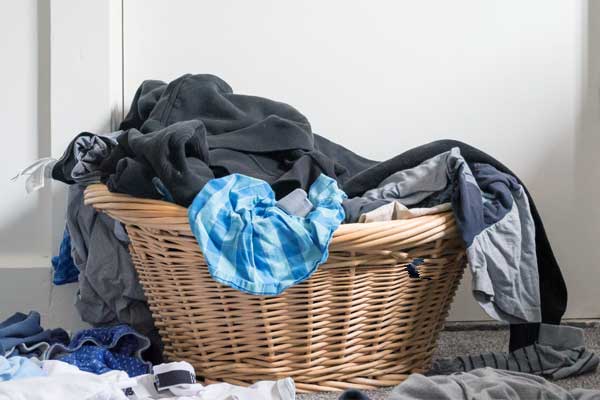
Organizing Isn’t The Answer
Organizing and decluttering aren’t the same thing. Decluttering is getting stuff out of your home. Organizing is just moving stuff around inside it.
You can be organized and still be suffering from many of the negative symptoms of clutter. Instead of saying “I need to get organized,” I encourage you to start experiencing some of the benefits a more minimal lifestyle has to offer by committing to getting excess stuff out of your home instead of moving it to a new storage bin.
Why Do You Feel Guilty Throwing Things Away?

There are so many reasons, most of them stemming from good intentions. You probably just want to be frugal, helpful, and thankful. Throwing stuff away is important, but that doesn’t make it easy when you start out.
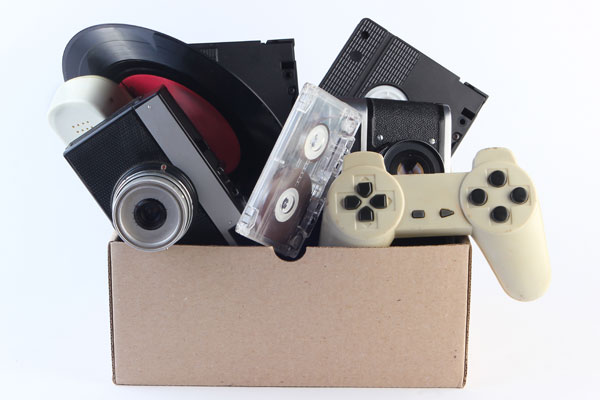 Please know that decluttering guilt is normal. You aren’t the only one having a breakdown over throwing away items you forgot you even owned.
Please know that decluttering guilt is normal. You aren’t the only one having a breakdown over throwing away items you forgot you even owned.
Almost everyone who struggles with clutter management feels guilty in some way about letting go of usable items. No one wants to be wasteful or regret throwing something away.
The truth is, though, the guilt you feel when getting rid of an item usually disappears when the item is gone. Why? You completely forget about it and instead begin enjoying your more spacious home. Out of sight, out of mind.
I have four strategies to help you kick those guilty voices right out of your head, but first, it’s good to understand why you feel guilty in the first place.
Here are six reasons we often feel guilt-tripped into holding onto things we should throw away.
Trying To Sell Something Instead Of Throwing It Out
Be honest. Those items you have that you think are worth money will you actually take the time to price, sell, and ship them?
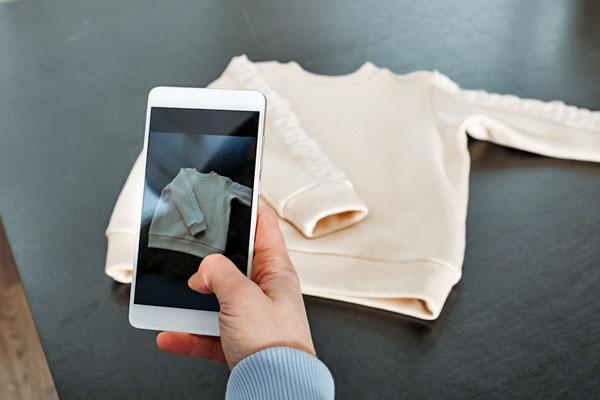 If your answer is yes, then set yourself a deadline. If you haven’t listed the items in a week, throw them out.
If your answer is yes, then set yourself a deadline. If you haven’t listed the items in a week, throw them out.
That might sound harsh, but the reality is our stuff is only worth what someone is willing to pay for it. More often than not, the time and trouble it takes to sell something online (or even in a garage sale) isn’t worth the small amount of money we’re able to get for it.
I’ve even heard stories of people determined to sell stuff online who ended up paying more in shipping than the buyer paid for the item itself. It can be a nightmare, and unless the item you have is worth a good sum of money, I honestly wouldn’t bother.
The amount of time you allow items to sit around waiting to be sold is the time they will take up valuable storage space in your home, adding unnecessary stress to your cleaning, organizing, and social life.
Feeling Wasteful Throwing Away Something You Never Used
I get it, you spent good money on it. But don’t fall for the sunk cost fallacy. Just because you spent money that you never saw a return on doesn’t mean leaving an item in your house will put that money back in your pocket.
Cut your losses and throw it away. Honestly, you’ll be surprised how much better you feel when you don’t see that item every day as a physical reminder of your mistake. That’s guilt and regret you can let go of along with the unused item.
Somebody Else Might Be Able To Use It
Dana K. White, author of Decluttering at the Speed of Life, often talks about the endowment effect. This term refers to the tendency people have of valuing something they own over something they don’t.
In other words, once you own an item, you’re likely to think it’s worth more than it is. It’s yours, so it must be important, right?
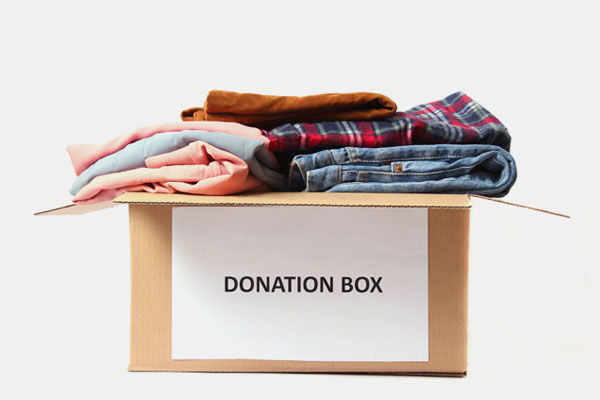 This effect is what often leads us to believe we need to “find a good home” for something we no longer need. I think if we’re honest with ourselves, though, we’re really just unloading our own junk on other people who didn’t ask for it.
This effect is what often leads us to believe we need to “find a good home” for something we no longer need. I think if we’re honest with ourselves, though, we’re really just unloading our own junk on other people who didn’t ask for it.
Just throw it out. Unless you already know of a specific person who needs a specific item you are getting rid of, simply donate usable items. Don’t unload your own guilt onto the people around you. Chances are your guilty feelings will disappear along with your donation box.
You Might Need It Someday
Who wants to discard something only to figure out a good use for it the next year? The truth is, I would. That is a whole year of extra space in my home without that item sitting around unused.
If you follow this principle, you can enjoy the extra space along with the peace of mind that comes from knowing it won’t be hard to get it again if you need it.
And honestly, you probably won’t ever need it.
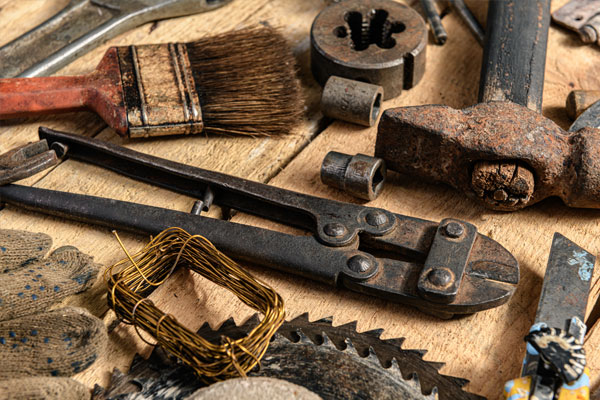
You Feel Guilty Throwing Away Sentimental Items
This is one of the biggest hang-ups for declutterers everywhere.
Even when an item is actually trash, if it’s sentimental trash, throwing it away makes you feel like you’re hurting the person or the memory associated with it.
Common Sentimental Clutter Culprits
- Pictures colored specially for you by a child
- Birthday cards from every year of your life
- Odd figurines from your great-grandmother
- Boxes of stuff left behind by a deceased loved one
- Mementos from a past romance
- Dried flowers from a significant date or anniversary
- Broken heirlooms left in the garage for years
- Gifts that are worn out and ready to retire

At the end of the day, no material items are permanent. No matter how precious something is to us, it is meant to be used up. If it’s not something designed to be eternally (or at least repeatedly) useful, it’s meant to be enjoyed.
Reserve a single container for your most treasured memorabilia. Whatever doesn’t fit inside and doesn’t serve a purpose or have a specific place to be enjoyed, throw away.
Keep one messily colored picture. One dried flower. Discard the rest. Let’s be honest, no matter how much your Nana loved those figurines, she wouldn’t want you to have nightmares about them watching you sleep.
You Don’t Think You Can Throw Away A Gift
This is your permission to accidentally break that hideous vase from Aunt What’s-Her-Name that you’ve hated since you got it.
Then, throw it away.
The hard thing about gifts is we tend to equate the gift itself with the love of the person who gave it. The gift is not their expression of love. The act of giving you the gift is.
You aren’t discounting your loved one by discreetly removing an unwanted item from your home. You already appreciate it enough because of who gave it to you. Don’t let the gift become a burden that might change how you view the giver. Give yourself permission to let it go.
Four Strategies For Throwing Things Away Without Guilt

While it’s perfectly normal to feel guilty about throwing things away, I have four strategies that changed the way I view clutter and now keep me motivated to declutter without the worry of regret. Decluttering guilt can be overcome when you take ownership of your belongings instead of letting them own you.
1Whenever Possible, Keep Your Clutter Out Of Landfill
Donate anything that’s in good condition. Anything that isn’t donatable, sort into recyclables and trash. Once you’ve recycled everything you can, you can throw the rest away feeling good about your intentionality in keeping as much stuff as possible out of landfill.
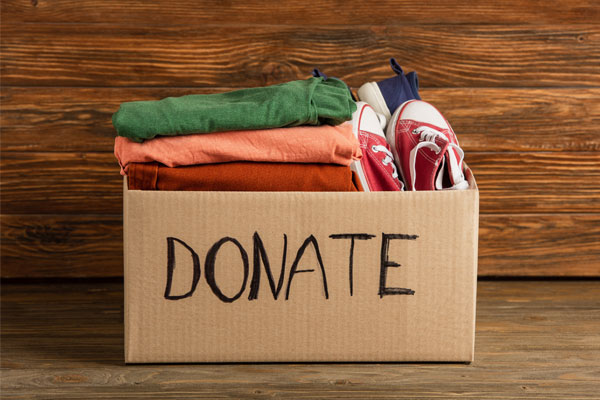
2Stop Keeping Things Around “Just In Case”
Your house isn’t meant to be your own personal convenience store. I think it’s possible that we’ve become so used to comfort and convenience in our modern world that we often think we need to be prepared for any situation that might come up.
Don’t get me wrong. I’m all about comfort and convenience. Sometimes, though, all we need is to get a little creative rather than have every possible item. Will you not serve ice cream to your guests just because you decluttered your fancy dessert dishes last year? Or will you just serve ice cream in regular bowls instead?
If you give yourself a chance, I think you’ll find that you’re quite a resourceful person.
3Remember Why You’re Throwing It Away In The First Place
Every time you start to feel guilty about throwing something away, remind yourself that you have too much stuff. In order to have more space, spend less time organizing, and feel less stress having company over, you need to have less stuff.
Remember, you aren’t rejecting anything or anyone in your past (or even a past version of yourself) by what you choose to discard. Instead, you are opening room in your home to enjoy your future.
4Think About The Benefits Decluttering Will Bring
Your dream of a spacious, lower-stress, happy home can become how you live your daily life right now.
Guilt will be a recurring problem when you begin digging through storage containers, shoe boxes, and kitchen cupboards. The good news is that it will get easier as you go. Once you decide to take ownership of your home and your clutter, you will soon discover the numerous benefits of living more minimally.
And once you’ve cleared your home of unnecessary clutter, your perspective on material things will shift. You will automatically become more careful with what items you allow into your home, making the rest of your life moving forward more intentional, confident, and enjoyable.
Tips For How To Get Started Throwing Things Away

When you begin a decluttering journey or project, it’s normal to feel overwhelmed when you’re getting started. Just keep in mind that your goal is to have an easily maintained, low-stress, enjoyable home. It won’t happen all at once, but each little victory will build into larger successes until you are living the life you used to imagine for yourself.
Here are some tips to get you started
15 Things To Throw Away Right Now

Now that you’re armed with four guilt-busting strategies and a few tips on how to start, you’re probably wondering what items you should discard first (and always).
These are items that you will discard in the future without a second thought because you’ll develop a declutterer’s sixth sense about what will invade your newly found peace at home. I promise.
Throw These Items Away Right Now
- Anything That Doesn’t Add Value
- Just In Case Items
- Photos And Paper
- Actual Trash
- Damaged Or Unusable Items
- Extras/Duplicates
- Stuff You Never Use
- An Abandoned Hobby
- Items From A Past Phase
- Anything Expired
- Things With Bad Memories
- Clothes That Don’t Fit
- Digital Clutter
- Large One-Use Items
- Gifts You Never Wanted Or Use
Give Yourself Permission To Throw Things Away

If instead you choose to actively manage the amount of stuff in your home, you can have the environment you want. It all starts with you.
Give yourself permission to enjoy a peaceful home by starting a lifelong habit of throwing things away.
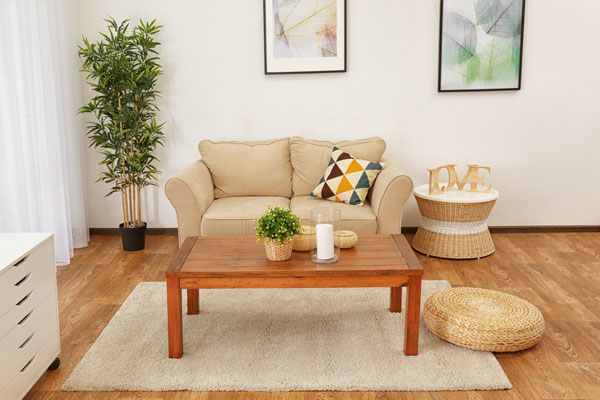
Your Turn!
- What items in your home would you love to part with if you gave yourself permission?
- What excuse do you use most often to avoid throwing things away?





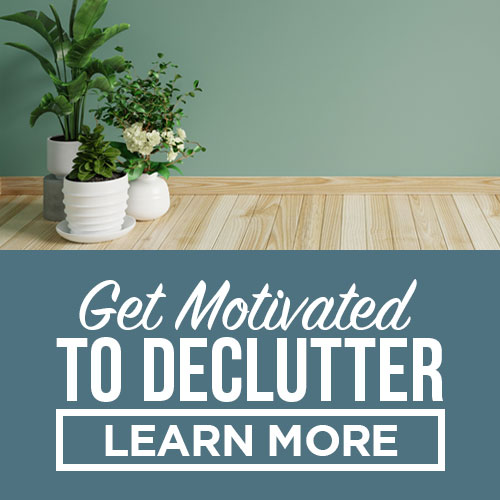


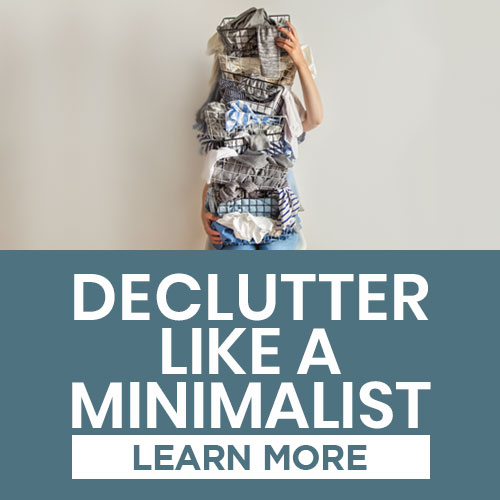
Ryan, regarding your instructions on how to throw stuff out – you’re smart. You’ve impressed me. You’re the first who really gets it, and who systematically reads my mind and my heart and with cogent, irresistible arguments talks me down off the ledge I’ve been on for years. I really mean this. Holding onto stuff isn’t merely inconvenient – it’s a deeper pathology, and you seem to recognize this. Your advice offers more than free space – it’s freedom from some awful aspect of our selves. Kudos, truly.